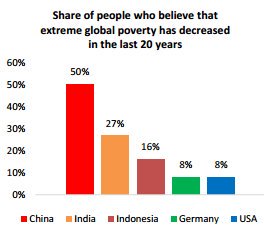

Last week the leading evangelical magazine Christianity Today sent social media ablaze with their short article “Trump Should Be Removed from Office” which argued, as the title suggests, that Trump should be removed from office.
Mark Galli, the magazine’s editor-in-chief and author of the piece, calls on believers to join in support of removing the president because he is not morally fit to serve. To quote Galli, “The president of the United States attempted to use his political power to coerce a foreign leader to harass and discredit one of the president’s political opponents. That is not only a violation of the Constitution; more importantly, it is profoundly immoral.”
What follows is a rebuke of Donald Trump’s immorality and of evangelicals who would minimize or ignore it. “To the many evangelicals who continue to support Mr. Trump in spite of his blackened moral record, we might say this: Remember who you are and whom you serve.” Galli goes on to recite how Christianity Today had made similar calls for Bill Clinton’s removal based on his immorality and argues it would be hypocritical to hold Trump to a different standard.
While the article did set social media ablaze and has encouraged some evangelicals to also express concerns about the president, we should be under no delusion that this somehow represents a tipping point with Trump’s evangelical supporters. Nearly 200 evangelical leaders slammed Christianity Today’s piece and tales of Trump’s iniquities are hardly news to anyone. Most evangelicals had already made peace with Trump by embracing some variant of the idea that so long as he is faithful on the big issues, such as appointing pro-life justices, it matters not what else he does. And some evangelicals have become immune to any attempts to persuade them that Trump is anything other than a shining beacon of virtue.
Speaking as a Trump-skeptical evangelical myself, I must say Galli’s article came as a breath of fresh air in a torrent of evangelical Trump sycophants. Professing evangelicals have remained Trump’s biggest base of supporters and far too many of our leaders have blurred the lines between politics and their faith in a pitiful show of solidarity. If for no other reason, it’s at least nice hearing a leader in the evangelical faith offer misgivings similar to my own rather than suggesting, as Franklin Graham and Eric Metaxas did, that my views may stem from demon possession.
Nevertheless, I have two concerns with Galli’s article.
Concern #1: Is a President’s Moral Character the Best Criteria for Deciding Whether to Remove Him from Office?
Trump is only the third president to be impeached, but the prior impeachment took place a little under twenty years ago. Why was Bill Clinton impeached? Because he had an affair with a White House intern, right? Well, no. Not exactly.
The Republican-led House of Representatives impeached Bill Clinton in December of 1998 on grounds of perjury to a grand jury and obstruction of justice. In other words, he lied under oath about his relationship with Monica Lewinsky and he attempted to cover up his misdeeds. Was this immoral? Of course. But that’s not what got him impeached. What got him impeached was that his actions were a violation of his Constitutional duty as president.
I get that Galli is writing to a largely Christian audience who turn to Christianity Today for religious and moral insight and not necessarily political op-eds. And, for the most part, Galli does a decent job rightly delineating between his political judgments and his religious convictions. But he does leave open the possibility that a president’s moral character is the primary political means by which we may determine they should be removed from office.
Galli states that Trump’s use of “political power to coerce a foreign leader to harass and discredit one of the president’s political opponents” is a violation of the Constitution. But he goes on to stress that “more importantly, it is profoundly immoral”. He argues that “none of the president’s positives can balance the moral and political danger we face under a leader of such grossly immoral character” and concludes that removal is “not a matter of partisan loyalties but loyalty to the Creator of the Ten Commandments.”
The term “political means” is important here. Having built a moral case, Galli calls on evangelicals to support a political judgment. Galli’s faith informs his moral convictions, but does it offer us any insight into the mechanism or prudence of removal? The criteria whereby a president may be removed from office are somewhat complex, and we would do well to not conflate the matter by elevating morality to the criteria.
Immorality isn’t adequate justification for removing a president. Neither is incompetence. Neither is bad policy. Neither is breaking the law. Neither is imprudent or unjustified military action. All of these things can contribute to reasons for removing a president. But impeachment and removal aren’t ultimately moral or ideological or legal questions. They’re political questions.
Jonah Goldberg offers an excellent example. He says (and here I’m ad-libbing his actual quote) that if Trump ordered the bombing of a foreign city that wouldn’t be impeachable. But if he were to order the bombing of all of the hotels in that city that were competitors to the hotels he owned, that would be impeachable. The political mechanisms of impeachment and removal are intended to protect us from a President who is abusing his power and is violating the Constitution. It is not there to protect us from the consequences of our own decisions to elect someone who is immoral, incompetent, executing bad policy, breaking the law, or entangling us in military misadventures.
Since some may argue that all presidents abuse their power and violate the Constitution to some degree or another, how are we to know when the abuse and violations rise to the level of impeachment and removal? That is a matter of political prudence. Precisely how much of the president’s moral character should weigh into this decision is also a matter of prudence, and may prove to be a surprisingly complex question for some as was discussed in a recent podcast.
Concern #2: Has Galli Made a Strong Enough Case Trump Should be Removed from Office?
As I said above, I’m a Trump-skeptical evangelical. I didn’t vote for Trump (or Hillary) in 2016 and I have been disgusted by his continual misconduct in office, while simultaneously grateful for the modest policy victories won thus far. As such, I’m the in the demographic that would probably be the most receptive to Galli’s message. And indeed, I do agree with much of what he’s written. But when it comes to his central call to action, I remain skeptical:
“Whether Mr. Trump should be removed from office by the Senate or by popular vote next election—that is a matter of prudential judgment. That he should be removed, we believe, is not a matter of partisan loyalties but loyalty to the Creator of the Ten Commandments.”
Let me stipulate that, in a certain sense, I agree Trump should be removed. In fact, Trump should have never been the Republican nominee, let alone actually win the election in 2016. It’s of some consolation that Trump’s election spared us from a Hillary presidency, but the great tragedy of 2016 is that two of the most unfit and unlikeable candidates we’ve seen in my lifetime somehow managed to simultaneously become nominees of the two major parties in a country of legions of better candidates to choose from.
That being said, we do not have the luxury of resolving political questions in some mythical “ideal” world, but in the actual world in which we live. And we must deal with the limitations and complications this world throws our way.
If Trump is to be removed, Galli has correctly narrowed our choices down to the two Constitutional methods afforded to us: 1) removal by the Senate or 2) losing the election in 2020. Galli asserts that Trump ought to be removed by one of these two methods. Let’s briefly examine both.
Removal by the Senate
Removal is a big deal and should not be taken lightly. What’s more, removal is a question of prudential politics and not moral good. Many people who enter into a political conversation through an evangelical lens can grow uncomfortable with such talk because it sounds impure, messy, or sinful. But we must take care to distinguish between what ought to be and what is. It may sound pious to say that we should “do what’s right” regardless of the consequences, but, in politics, considering the consequences IS part of doing what’s right.
The point is that there may be circumstances in which retaining a president is a great evil, but removing the president produces an even greater evil. In our history as a nation, removal has never happened. But during those nearly 250 years eras of violent divisions and bickering and, in one extreme case, civil war has resulted from our inability to reconcile our differences over presidential disputes. Ideally, if a president is unfit for office it will become apparent to the majority of Americans and cut across ideological and partisan lines. Whether or not Republicans should feel that Trump is unfit is an entirely different question from whether or not they do.
Should Republicans reject Donald Trump? Absolutely! He is unfit for the high office of president both due to his lack of character and his abuse of his authority. But the fact is, the vast majority of Republicans don’t currently see it that way and it is highly unlikely that will change in an environment where the opposition party seems hellbent on competing with one another to drive further and further to the Left. Barring some unusual events, the attitudes on the president from both his supporters and opponents are very unlikely to change.
The purpose of removal is not to punish some wayward president or to satisfy Americans that the president got their comeuppance. The purpose is to protect the republic from a threat to the Constitutional order. The question must be asked then, under our current political divisiveness, which is the greater threat to the Constitutional order: the president or the further division that would likely result from his removal?
Losing the Election in 2020
Elections don’t occur in a vacuum. And, while I reject the idea that we are only presented with a binary choice on election day because we have the option of voting for a longshot candidate or simply not voting, we should not be ignorant of the likely consequences of our votes.
Many of my 2016 NeverTrump friends have sworn off voting for Trump in 2020 as well. I’m reluctant to make such a vow for fear that, once I do, the radical Left will manage to infiltrate enough of the Democratic party and nominate such a noxious candidate that they would appear to be a disproportionately greater threat to conservatism, the GOP, and the nation as a whole than anything Donald Trump has done or likely will do. In 2016 I did not believe either candidate represented a disproportionately greater threat than the other. I may not have that luxury the next time.
Here too some good old-fashion prudence is in order. If we have reason to believe (which we do) that the Democrats are unlikely to take the Senate in 2020, should that give us adequate cover to vote against Trump and hope the GOP wins big in 2024? Does it matter which candidate the Democrats nominate, or are they all better or worse than Trump? Would Trump winning in 2020 further push the Democrats to the Left or moderate the party? Would Trump winning in 2020 usher in the populist nationalism take-over of the GOP for a generation? Would it cost the GOP the youth vote, thereby handing the Democratic party larger victories for decades to come? If we had a major catastrophe, terrorist attack, or, God forbid, military conflict with a nation such as Russia or China over the next four years, would it be worth electing a Leftist president just to see to it we aren’t relying on Trump’s juvenile temperament to weather the storm?
Fellow Trump-skeptic evangelicals and Americans of all stripes will look at these same facts and disagree on what is to be done. I’m currently on the fence as to whether Trump should be removed from office given our current options.
Who Speaks for Evangelicals?
Maybe we should stop looking to “evangelical leaders” for spiritual advice on political matters. The good Lord has placed many incredible men and women in positions of authority and insight within our political institutions, and we would do well to heed their advice in matters of politics over the unlearned musings of those who have made a name for themselves in the evangelical faith but have no special knowledge or experience in politics.
Hardly a day goes by where some evangelical “leader” isn’t saying something cringeworthy in relation to the president. In spite of my reservations though, I do think Galli’s piece is laudable and, quite frankly, rather courageous given his audience. It’s a good start, but the real work must take place with you and I as we mull these thoughts over in our heads and hearts and learn to discuss them among ourselves with civility and sobriety.
from savingelephantsblog
via https://www.savingelephantsblog.com/saving-elephants-blog



